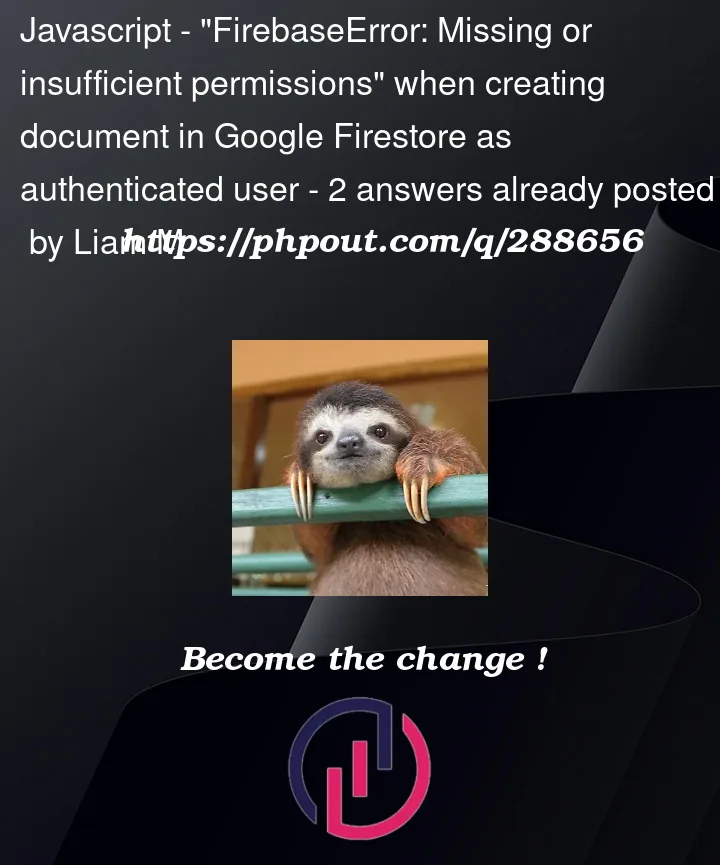I am trying to create a document in Google Firestore as follows:
const docData = {
name: name,
type: type,
ownerId: this.auth.session!.userUid
}
await addDoc(collection(this.firebase.firestore, "projects"), docData)
I can see (via an onAuthStateChanged(...) callback), that the user is signed-in and making an authenticated request. The payload is { name: "dfgdfgdfg", type: "CommonV1", ownerId: "5sp...F53" } (ellipses added for brevity; the full ownerId is given in the actual request). However, I receive an "FirebaseError: Missing or insufficient permissions." error.
I would like projects to be accessible to the user who created them, and nobody else (to begin with). To this end, my security rules are as follows:
rules_version = '2';
service cloud.firestore {
match /databases/{database}/documents {
// True if the user is signed in and they own the resource.
function OwnsResource() {
return request.auth.uid != null && resource.data.ownerId == request.auth.uid;
}
// By default, no documents may be read.
match /{document=**} {
allow read, write: if false;
}
// Allow a project to be created, read or written by its owner.
match /projects/{project} {
allow create, read, write: if ownsResource();
}
}
}
I believe the problem is in my rules, but I cannot see where.
How can I resolve this problem and create the project, as desired?




2
Answers
I was pointed to the firebase rules editor in the Firebase console. It helped me identify an error (in addition to Phil's comment). Where I had:
It should have had:
This works. For anyone reading this: the Firestore rules playground in the Firebase console is an excellent tool.
Ignoring that
allow createis redundant withallow write:resource.datapoints to the data in your document as it was when you made the change. So for a document that does not yet exist, this will benull. You then callnull.ownerId, which throws an exception and blocks the change.To prevent throwing the exception, you’d need to check for this first:
However, this rule won’t handle a newly created document (as
resource.datawill benull), you’d need to either add to the above function, or create a new one:It is important to note that in the above rules that the prior state of the document is checked. By using just
request.resource.data.ownerIdoverresource.data.ownerId, the new write can change the oldownerIdof the document. SouserBcould take overuserA‘s project.Additionally, note that
request.auth.uid != nullhas been corrected torequest.auth != null. The former statement will throw an exception when a user is not logged in.This then allows your rules to become:
or